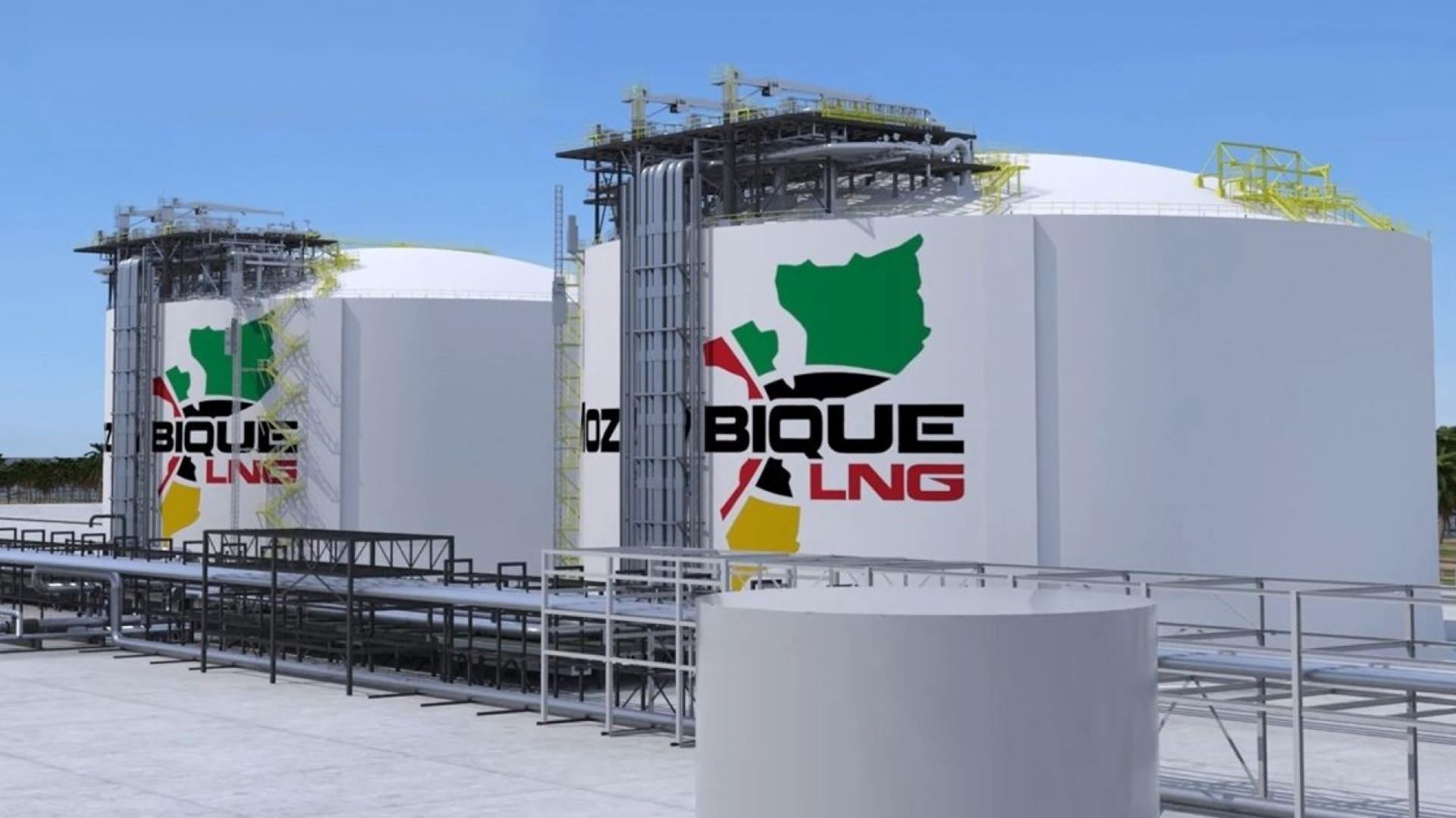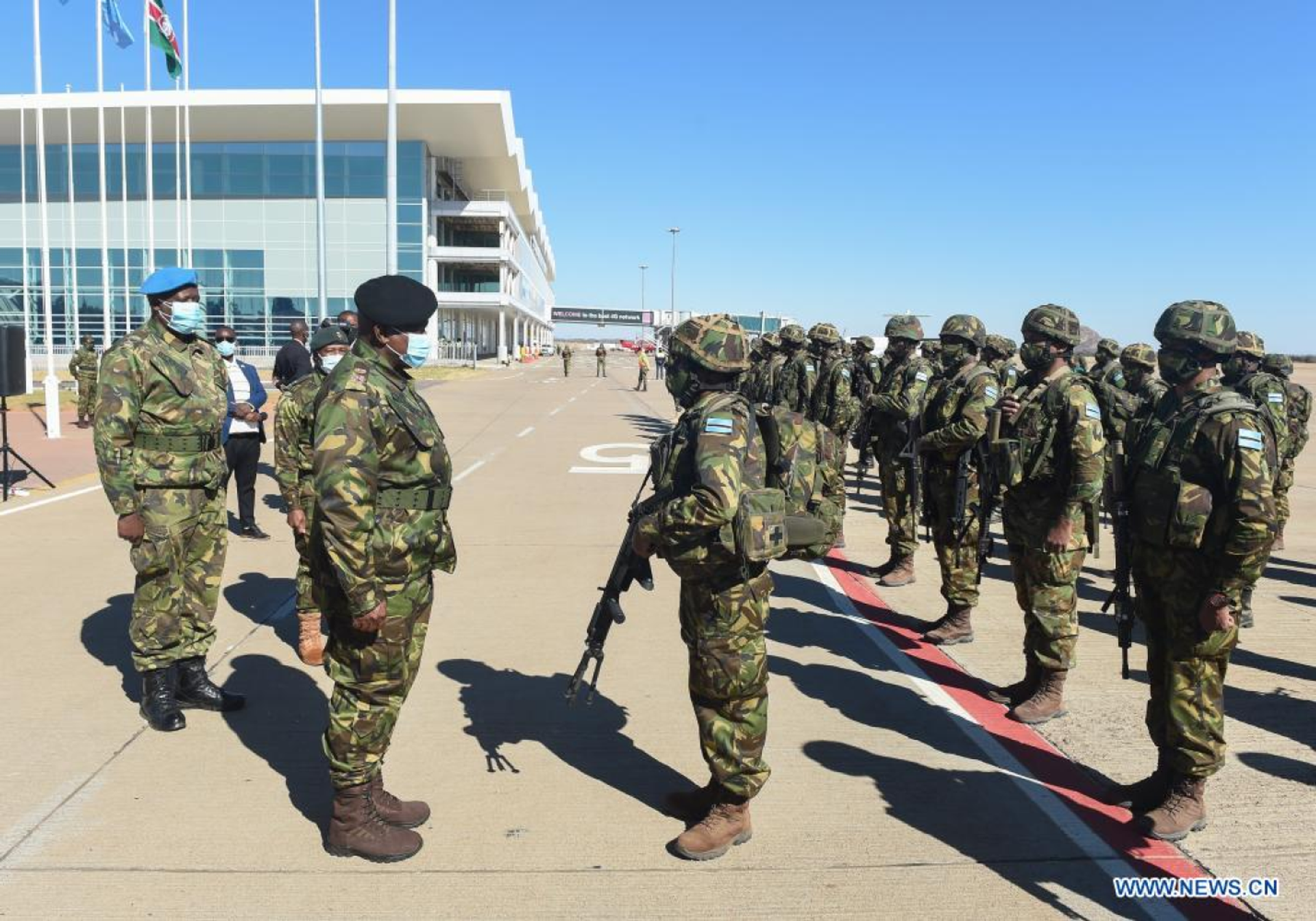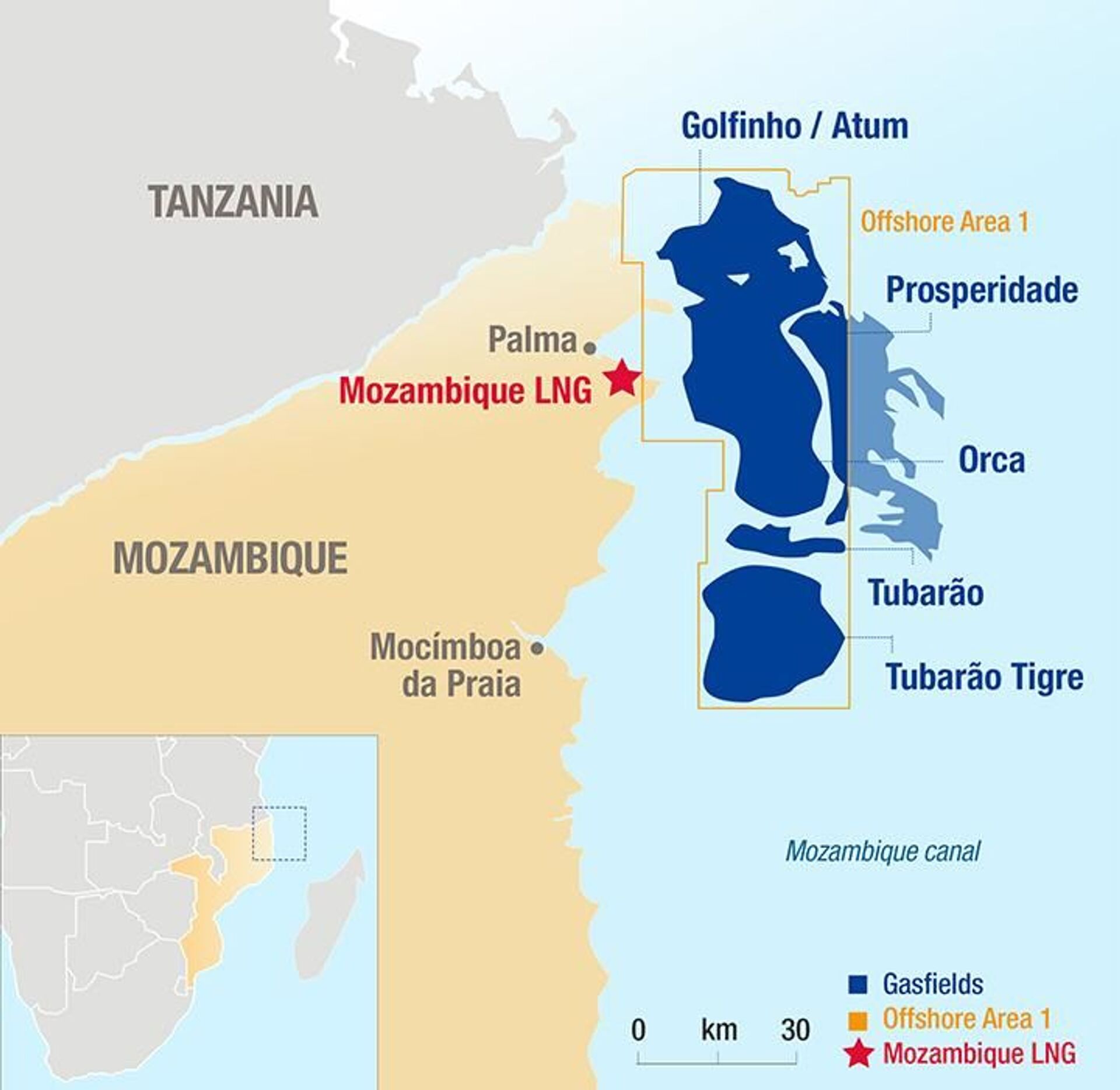French Gas Giant Total Could Resume Huge Mozambique Project in 2022 After Insurgency-Driven Hiatus
20:34 GMT 01.02.2022 (Updated: 09:05 GMT 10.02.2023)

© Total
Subscribe
French gas and petrol giant Total has announced its intention to restart a massive offshore gas project on the Mozambican coast after a dangerous insurgency spiked in the area last year. The project is worth more than the southern African country’s entire gross national product and Maputo is desperate for it to resume.
"When I will see that life is back to normality, which means having some state services and population, then the project can restart," TotalEnergies CEO Patrick Pouyanne told reporters in Maputo on Monday following a meeting with Mozambican President Filipe Nyusi.
"My objective is that we will restart in 2022,” he added.
Total declared force majeure on the Afungi Liquified Natural Gas Plant project in Mozambique’s northern Cabo Delgado province in April 2021 after Islamist rebels sacked the nearby port city of Palma - their second such attack on a major town. In response, Nyusi summoned help from the Southern African Development Community (SADC) regional bloc as well as Rwanda, both of which deployed thousands of troops to the province to fight the rebellion.
Several private military contractors had also previously furnished security forces in the region, but as Sputnik reported, their brutal treatment of the local population only deepened animosity toward Nyusi’s government, 2,000 miles to the south. Maputo was forced to hire them after accepting loans from the International Monetary Fund that forced the country to severely restrict its budget in order to pay back the loan.

Botswana's President Mokgweetsi Masisi sends off troops to Mozambique as part of the Southern Africa Development Community (SADC) Standby Force at Sir Seretse Khama International Airport in Gaborone, Botswana, July 26, 2021. The Botswana Defence Force (BDF) will provide regional support to the Republic of Mozambique to combat the looming threat of terrorism and acts of violent extremism in the Cabo Delgado region, as an element of the SADC Mission in Mozambique. A total of 296 BDF soldiers will be deployed in Mozambique, and 70 of them departed on Monday.
Nyusi also tapped help from the United States, European Union, and former colonial ruler Portugal, all of which supplied a small number of experts to train the Mozambican armed forces in new tactics.
Known locally in the Muslim-majority province as Al-Shabab (“the youth”), the Islamist rebels are unrelated to the Somali group of the same name, but have declared their affiliation with Daesh*, although many analysts doubt the claim goes beyond an attempt to increase attention for their cause. Their rebellion began in 2017 and the conflict has killed at least 3,500 people and displaced 700,000. Cabo Delgado is one of Mozambique’s poorest provinces, and the recent gas projects, along with a massive ruby mining operation in the West, have put extensive pressure on local residents, who already feel forgotten by Maputo.
As a result, analysts have warned that a purely military solution to the insurgency may not exist, and the government will have to undermine Al-Shabab’s social support among the population.
The multinational force has largely succeeded at recapturing much of Cabo Delgado, and Al-Shabab have retreated westward into Niassa province and established a new base of operations. On Monday, Mozambican national police announced they had killed another key rebel leader: Tuahil Muhidim, a Tanzanian.
"He directed the attack on Mocimboa da Praia. He also kidnapped those two Brazilian nuns,” police general commander Bernardino Rafael said on national radio, according to AFP.
Mocimboa da Praia is a town of 30,000 in southern Cabo Delgado, which the rebel forces captured in August 2020. The two nuns were kidnapped from Mocimboa da Praia after its capture and held for several weeks before being released. Mocimboa da Praia was recaptured almost exactly a year after its fall.
"Security forces operations are having an effect. The terrorists are weakened," Rafael said, explaining that seven insurgent leaders had been killed in the last two months.
The gas reserves off the Cabo Delgado coast were discovered in 2010 and are the largest south of the Sahara. Total isn’t the only gas company trying to tap them, either, though: ENI and ExxonMobil operate the Coral Sul project, and a third, unapproved project called Rovuma, between ExxonMobil, ENI, and China National Petroleum Corporation (CNPC) would be the largest of the three. Together, the Cabo Delgado gas projects total more than $50 billion; Mozambique’s GDP is just $13 billion.
ExxonMobil also suspended operations last spring, but did not declare force majeure. ENI’s Coral Sul project, entirely offshore, is the only one of the three that’s remained on schedule, with its massive floating deep water facility arriving in position in early January.
ENI told AFP on Tuesday: "We continue to monitor security developments in the Cabo Delgado region and work closely with the government on this matter."
Total’s Afungi project was originally expected to begin pumping gas by 2026, but Rystad Energy warned after Total’s and ExxonMobil put their projects on hold that the delay is likely to cause an liquified natural gas supply crunch later this decade.
*Daesh (also known as the Islamic State, IS) is a terrorist organisation outlawed in Russia and many other states


